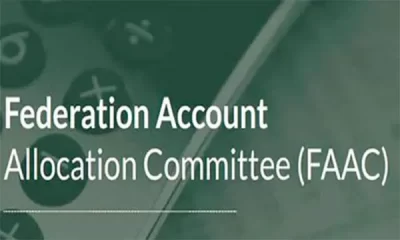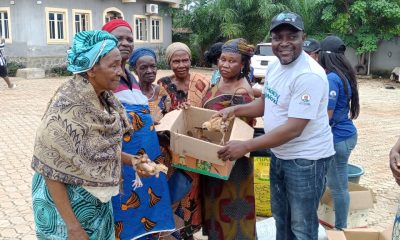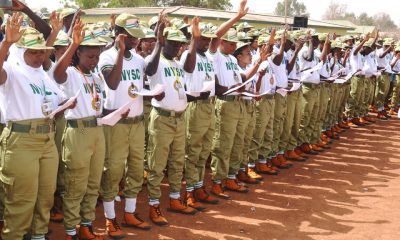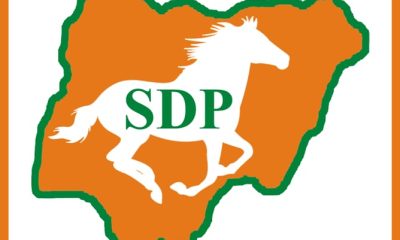COVER
Nine States Spend N10bn in Fight Against COVID -19
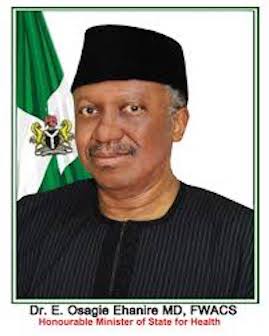
By Mathew Dadiya(Abuja), Dan Amasingha(Minna), Alfred Babs(Ilorin), Vincent Nyinongu(Makurdi), Beauty John(Lafia) and Sylvia Udegbunam(Enugu)
Three months after President Muhammadu Buhari, ordered a total lockdown in Lagos, Abuja, Ogun and subsequently other state governors followed the same order to curb the spread of the novel Coronavirus otherwise called COVID -19 pandemic in the country,
Nine out of the 36 states of the Federation may have committed over N10billion so far in the fight against the COVID-19 pandemic, investigation by DAILY ASSET has revealed.
The funds were spent in the last three months when President Muhammadu Buhari first announced a total lockdown of Lagos and Ogun states as well as the Federal Capital Territory(FCT) on March 29, in the first national response to curb the spread of the dreaded novel Coronavirus.
As the virus spread across the country, the Federal Government enthroned a regime of restriction on inter-state movement and urged states to come up with local measures to curb its further spread.
President had on Sunday March 29, in a national broadcast, announced cessation of all movements for Lagos and the Federal Capital Territory (FCT), Abuja for an initial period of 14 days with effect from midnight Monday March 30, 2020.
At that time, the total number of infected persons with COVID-19 in Nigeria was 97 with Lagos, Abuja and Ogun leading the chart, compelling President Buhari to order a lockdown in the two affected States and the FCT.
Since then most of the states responded with huge emergency budgetary and extra-budgetary expenditures to implement various response measures in their respective states.
But as at Sunday, July 13, 2020 Nigeria recorded a total of 33,153, infected cases, 13, 671 people have recovered from the disease while 744 people have died. The figures have been on the increase
since June 30, when the Federal Government lifted the restriction on inter-state movement.
Since the outbreak of the pandemic, the states and federal government have recorded billions of naira in donations from individuals and corporate organisations as support for the fight against the virus. Many state governments have claimed to have expended huge amounts of money in testing, treatment and procurement of Personal Protective Equipment (PPE) as well as setting up of isolation Centers.
While the Federal Government said it has spent billions to stem the spread of the novel virus in the country, state governments have also been making claims to spending humongous amounts of money in tackling the disease.
Recently, President Muhammadu Buhari approved N6.2 billion for the fight against COVID-19 in Niger Delta, amid huge sums already given to other geopolitical zones. Lagos alone was given N10 billion by the federal government as support for the COVID19-19 fight.
On April 20, 2020, the executive board of the International Monetary Fund (IMF) approved US$ 3.4 billion in emergency support to Nigeria to address the pandemic.
The federal government has realised N145 billion from 395 contributors recently and is expected to increase.
DAILY ASSET’s checks in nine selected states revealed serious doubts in some areas raising fears that the huge sums were allegedly spent on some other sub-heads other than COVID-19.
States Spending on Covid-19:
Niger Expends N795 million
The Niger state government has said it expended the sum of N795M in three months for COVID-19 activities since the out break of the pandemic.
The state government however, lamented that since the out break, it was yet to receive any financial support from the Federal government for COVID-19 activities.
Secretary to Niger State Government, Alhaji Ibrahim Ahmed Matane, who is the Chairman of the state COVID-19 Taskforce disclosed this while fielding questions from members of the state House of Assembly.
Giving a breakdown on how some of the funds were expended, Matane explained that N410 million was expended for palliatives to the vulnerable in the society, while the sum of N85 million was spent for electricity subsidy,
He also disclosed that about N200million was expended on transportation in transferring positive patients to isolation and treatment centres along with allowances for committee members.
“Most of the resources was expended for transportation of movement of taskforce members, movement of patients from the local government centres to the isolation centres, providing water, allowances for volunteers, security operatives, front line workers and some members of the task force,” he stated.
The Chairman of the COVID-19 committee further explained that another amount sum of N290 million was expended on medicals for the purchase of Personal protective equipment (PPEs), drugs, capacity building for health workers, risk communication and travelling of health workers.
According to him, the state taskforce also got N47 million as donations from individuals and cooperate organizations stressing that the fund has not been touched.
“Everything we have done is from the budgetary allocation from the state government. We have not received one naira from the Federal government in terms of monetary donations, only the three trucks of rice and 700 jerricans of vegetable oil from the Ministry of Humanitarian Affairs.
“The money received from donations from individuals and organizations is N47 million and the money is still there. We have not spent a dime from it.”
The members of the Niger state House of Assembly have however expressed misgivings on the amount spent by the state COVID-19 taskforce committee in battling the virus that has claimed 7 lives out of the 118 positive cases in the state.
Kwara Spends N1.569 billion
Kwara state government said that a total of N1,569,107,944.70 so far has been spent in the fight against COVID-19 pandemic between April 1 and June 29,2020.
The government in a statement signed by Rafiu Ajakaye, Chief Press Secretary to the governor and spokesperson to the state Technical Committee on COVID-19 said that it received the sum of N243m as financial donations from private individuals and corporate bodies between March 27 and July 3, 2020.
Ajakaye said that the breakdown of the expenses including the running cost of the activities of the technical committee (N132,931,510); medical supplies and equipment (N713,480,100.90); palliatives (N525,277,030.00); COVID-19 related renovation works N149,928,753.80; and security, health workers’ allowances and logistics (N47,490,550.00).
“These expenses covered the purchase of military grade Toyota Land Cruiser Ambulances; automated ventilators and several other Intensive Care Unit (ICU) gadgets/equipment; production of hand sanitizers; and the cost of running the activities of the technical committee and its subcommittees, the statement added.
“The expenses also included the cost of the palliatives that were distributed during the lockdown; renovation of the Sobi Specialist Hospital and the Hajj Camp; mass production of face masks, purchase of surgical masks, digital thermometers and respirators and other Personal Protective Equipment; medical supplies and consumables; security expenses; trainings; allowances for medical personnel and other supportive staff in charge of the pandemic; part-renovation of the Offa General Hospital as an isolation centre; and patients’ management, among others.
The government said it received N243million as financial donations from private individuals and corporate bodies between March 27 and at the time of this report.
The statement said that the donations were in respect of the government’s fight against COVID-19 pandemic, and had at various times been acknowledged in official news releases.
Benue State Government Spends N250 million
Benue State Government said it has spent a fortune in the region of 250 million naira in combating the spread of covid-19 in the state.
The state chairman on Action Committee on Covid-19 and Deputy Governor, Engr. Benson Abounu disclosed but did not give details of the expenditure.
He, however, said that part of the funds was used in establishing two isolation centres at the Federal Medical Centre and the State University Teaching Hospital, which were currently serving the state for isolation and treatment.
According him, the funds were also used in equipping government general hospitals to serve as temporary centres for support to the Central isolation centres in emergency situations as well as treatment of those infected by the virus. The effort has yielded significantly given that Benue has never recorded any death despite swollen number of infections.
“The funds were also used in procuring face masks and hand sanitizers which were distributed to the people to curb the spread. This was done to cushion the impact of the pandemic on the economic well-being of the people.
Other issues like, contact tracing, market fumigations, monitoring and awareness creation as well as repatriation of infiltrators gulped up a significant part of the said sum,” he said.
Enugu State Spends N330 million
The Enugu State Executive Council (EXCO) approved the sum of N330million to tackle the scourge of the COVID-19 in the state.
Recall that the state medical team led by the Permanent Secretary, Ministry of Health, Dr. Ifeanyi Agujiobi, in his update stated that the Council approved the immediate upgrade and relocation of the state Isolation Centre to ESUT Teaching Hospital, Parklane, Enugu.
He disclosed that the Council’s decision was based on the medical team’s recommendation and in line with the advice from the Nigeria Centre for Disease Control (NCDC) that Isolation Centres are best located within the Specialist Hospitals of the states for prompt and effective emergency response.
He explained that the relocation “will be more convenient, easier for patients who may have Coronavirus or suspected to have Coronavirus to be attended to by medical specialists promptly and timely”, adding that the patient will have access to “the X-Ray machines, the dialysis machine and other high tech machines domiciled in the Teaching hospital”.
The team leader, appreciated Governor Ifeanyi Ugwuanyi for his efforts and effective leadership role in driving “not just the health sector but the entire sectors in Enugu State.”
Agujiobi further disclosed that the Council considered and approved the procurement of more personal protective equipment, sanitizers, masks, respirators and all that are needed to aid the physicians manage their patients.
He further explained that the sum of N150 million was approved by the Council to tackle the issue of Coronavirus and to ensure that the state was fully prepared, while the sum N80 million was also approved for procurement of important and essential drugs that may be needed to treat and manage Coronavirus, Lassa fever and other communicable diseases.
According to him, “the Enugu State Executive Council, in addition, approved N100 million to be kept in the Emergency Operation Centre account, in case of any emergency or any need to access fund before the next EXCO.”
Nasarawa Government Spends Over N500million
The Nasarawa state Deputy Governor, Dr Emmanuel Akabe has disclosed that the state government has expended over N536,156 m in it’s effort to contain the spread of COVID-19 in the state.
Akabe who doubles as the chairman, Nasarawa state task force on COVID-19 made this known to newsmen in Lafia recently.
According to the deputy governor, the money spent was released to ministries, departments and agencies (MDA’s) involved in the fight against the spread of the novel coronavirus pandemic in the state.
Giving the break down, he said that Ministry of health was allocated the sum of N253,890,000, Ministry of Agriculture and Rural Development N134,350,000 while Sustainable Development Goals ( SDG’s)got N32,288,000, Ministry of Justice N72,981,000, Environment and Natural Resources N21,800,000 were allocated the above sums respectively.
The COVID-19 sum of N3,530,000 was was released Dalhatu Araf Specialist Hospital (DASH), Ministry of Information, Culture and Tourism N3,530,000 , Head of Service N3 million, Bureau for Information Communication Technology N 1, 127, 000.
Akabe said that some of the money was used in providing palliatives distributed to the poor to help cushion the effect of pandemic, while protective equipments were also secured from some of the fund.
“The money was used in buying palliative, Personal Protective Equipments (PPEs), security, fumigation of places, sensitisation, setting up of isolation centres, security among others” he said.
In his own words “the sum of N4.5 million naira was released to the chairmen of Nasarawa and Karu Local Government Areas respectively”.
The Deputy Governor gave the released of the money to MDAs to includes; Ministry of Health N253, 890, 000, Information N3, 530, 000, Dalhatu Specialist Hospital Lafia N3, 530, 000, Agriculture and Rural Development N134, 350, 000, Environment and Natural Resources N21, 8000.
Others are; Secretariat of the COVID-19 committee N1, 850, 000, Ministry of Justice N74, 981, 000, Head of Service N3 million, Sustainable Development Goals N32, 288, 000, Bureau for Information Communication Technology N1, 270, 000.
Several donations have been made in the sum of N94 million by different groups, individuals and organizations to compliment government’s effort.
Akabe called on the people to obey the rules by adhering strictly to the use of face masks, washing of hands and use of hand sanitizers, maintaining social distancing and staying away from crowded places.
Lagos spends N800 million on COVID-19 testing
Lagos State government has said it had conducted 16,000 COVID-19 tests so far at the average cost of N40,000 to N50,000. It, therefore, said it had spent about N800 million on testing alone.
The state Governemnt however, refused to dispose the total sum it has expended since the outbreak of the novel Coronavirus despite being the epicenter of the pandemic in the country.
The state’s Commissioner for Health, Prof. Akin Abayomi, stated this while giving updates on state government’s efforts to curb and manage Coronavirus, ignoring the question on how much the state government is spending averagely to treat a COVID-19 patient.
Edo Commits N1bn to COVID-19
Edo.State government said it has spent over N1 billion so to stem the spread of the disease.
Governor Godwin Obaseki, on April 19, said that the state had already spent over N1bn on its COVID-19 response.
His deputy, Mr. Philip Shaibu, later gave a breakdown of how the state spent over N1bn in its response to coronavirus disease now ravaging the world.
Shaibu, who also serves as Chairman of the state’s COVID-19 response Technical Committee, said the money was spent on procuring medical equipment, isolation centres, PPE, and palliatives.
Speaking on a live TV interview on Tuesday, Dr. Okundia said it might be necessary to wait till the end of the pandemic to ascertain how much has been spent, because the state government was spending money every day to fight COVID-19.
“I think the governor has already given an estimate of the expenses going on, but it is at the end of this outbreak that you can actually say how much was really expended.
“So far, it is an emergency situation. Activities are going on and things are coming up every day.
“We are working to build a 350-bed isolation centre. The centre will be at the Stella Obasanjo Hospital, which has been designated as a COVID-19 response centre.
“We’ve trained trained 4,215 healthcare workers. The state has approved incentives for all healthcare workers who are involved in the frontline management of COVID-19.
“We have procured molecular polymerase chain reaction machines, though we have one at the Specialist Hospital in Irrua serving the whole of South.
“However, there was the need to increase the testing capacity. So, the governor went ahead and got two more molecular polymerase chain reaction machines.
“One was for the University of Benin Teaching Hospital and the other was for the Edo Specialist Hospital. This will help to get more people tested,” he said.
Okundia also said the state had adapted its strategy to fight COVID-19 ‘because the viral disease is now in the community.’
“It is becoming obvious that we are now in the phase of community spread of the disease; so, efforts are being geared towards screening in the community.
“The exercise is going on across the 18 local governments of Edo State.
“We started from the first four local governments that had confirmed Coronavirus cases.
“We’ve scaled up mobile screening. This is going on in two local government areas.
“We have set up screening posts at our borders. We have about 18 entry points into Edo State and we have personnel there, with Police and security support to screen people as they come into the state,” he added.
Oyo State Spends N2.8bn
Oyo state government said that it has over N2.8 billion in the fight against Coronavirus.
While N900 million was spent on palliatives and seedlings for affected farmers, it stated that about N370 million was spent on the Infectious Diseases Centre, Olodo.
The governor said that N453million has been spent on security and securing the state borders on the right against COVID-19, N156milliin to be paid to health workers, including volunteers and medical and health workers as allowances.
“The sum of N118m is given to the University College Hospital (UCH), Ibadan as support, N321million used in buying ambulances to support the ministry of health and N614 spent on reagents, consumables, tests and cost of treating the patients in the state” he added.
The state, he however said is awaiting financial support of N100million from Federal Government through the National Centre for Disease Control (NCDC).
Ogun Commits Over N2 billion to Curb COVID-19
Governor Dapo Abiodun of Ogun State, who declined to disclose the exact amount spent, said that his administration has spent billions of naira in the fight against the spread of COVID-19 pandemic in the state.
The governor did not declare the exact amount he has spent in waging war against the viral disease. DAILY ASSET investigations revealed that about N2billion may have been expened so far by the Abiodun administration in the state on the pandemic.
According to Abiodun the billions of naira were expended on “setting up isolation centers, procuring equipment, sensitization, manpower development, surveillance and other logistics; especially the purchase food items that were distributed across the state to cushion the effects of lockdown on its citizen.”
SERAP Challenges FG on COVID-19 Expenditure
Meanwhile, Socio-Economic Rights and Accountability Project (SERAP) has asked the Federal Government and Central Bank of Nigeria (CBN) to “provide spending details of public funds and private sector donations to provide socio-economic benefits to the country’s poorest and most vulnerable people, including details of beneficiaries of any cash payments, cash transfers, food distribution and other benefits during the lockdown in Abuja; Lagos and Ogun states because of COVID-19.”
SERAP also asked the Federal Government and CBN to: “disclose information on the details of implementation of the school feeding programme during the lockdown and closure of schools in several states where the programme is being implemented, including the number of children that have so far benefited from the programme and the names of the communities, since the lockdown and closure of schools, as well as the number of cooks engaged.”
DAILY ASSET will continue to give update on the amount of money each of the 36 states of the federation and the FCT has expended on the COVID-19 including the money committed by the federal government to prevent the spread of the disease and cushion the adverse effects on the economy.
COVER
FG Approves Mandatory Drug Integrity Test for Tertiary Students

By Attah Ede, Makurdi
In a bold move to tackle the growing menace of drug abuse among young people, the Minister of Education, Dr. Tunji Alausa, has approved the implementation of mandatory drug integrity testing for students in Nigeria’s tertiary institutions.This initiative, announced after a strategic meeting with the Chairman of the National Drug Law Enforcement Agency (NDLEA), Brig.
Gen. Buba Marwa (retd), will apply to both new and returning students through compulsory and random testing.The development is part of a comprehensive three-pronged strategy proposed by the NDLEA, which includes curriculum reform to introduce up-to-date drug education in schools, stand-alone drug abuse prevention programs at the secondary level, and a national student drug testing policy.According to NDLEA spokesman, Femi Babafemi, over 40,000 drug offenders have been arrested and more than 5,500 metric tonnes of narcotics seized in the last two years alone.Marwa emphasized the urgent need for this initiative, stating that drug use fuels criminal activities including terrorism, kidnapping, and banditry.“We are fighting for the souls of our children. Without drugs, many criminal activities would not be possible,” Marwa declared.Dr. Alausa acknowledged the devastating effects of drug abuse on academic performance and employability, describing it as a major threat to national development.“When youths get into drugs, they lose interest in education. Even if they attend school, they’re not functional. Their ability to make informed life decisions is diminished, making them unemployable,” Alausa warned.To institutionalize the reforms, the minister announced the establishment of a Substance Use Prevention Unit in the ministry and the formation of an inter-ministerial working group with the NDLEA. He also committed to collaborating with the Universal Basic Education Commission and the Tertiary Education Trust Fund to support the NDLEA Academy in Jos.Meanwhile, in Makurdi, Benue State, a different kind of crisis is unfolding. No fewer than 76 nursing students at the Benue State University (BSU) were forcefully evicted from their hostels on Thursday, following a dispute over increased accommodation fees.The students, who were relocated from the main campus to the dilapidated facilities of the former School of Nursing and Midwifery, said they were asked to pay N30,000 per bed space, double the N15,000 charged at the main hostels.According to them, the eviction came without prior notice, even as the students were in the middle of their first semester exams and preparing for their clinical postings slated for August 11.Many of them, coming from distant states such as Lagos, Kaduna, and Abuja, were left stranded on the streets with their luggage and no alternative accommodation.Acting President of the Benue Schools of Nursing and Midwifery Alumni Association and media aide to the State NANNM Chairman, Mhange Moses, condemned the action as harsh and insensitive.“This is a shameful treatment. These students live in appalling conditions — no water, no electricity, broken toilets. Now they are being thrown out with no place to go. The nursing college is at risk of losing accreditation, and the students’ futures are in jeopardy,” Moses lamented.He appealed to Governor Hyacinth Alia to intervene urgently and provide a safe and conducive learning environment.“Nurses are the custodians of public health. They deserve better. We appreciate the governor’s efforts in upgrading the institution, but he must act now to prevent further damage,” Moses urged.As the federal government ramps up its fight against drug abuse in tertiary institutions, the plight of these nursing students highlights another pressing issue in the education sector—access to basic, dignified living conditions while pursuing academic and professional training.COVER
FCMB Group Records N529.2bn in Half Year Gross Earnings
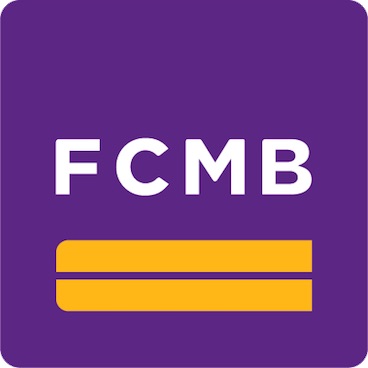
By Tony Obiechina, Abuja
FCMB Group Plc has announced its financial results for the half-year period ended June 30, 2025, recording gross earnings of N529.2bn, representing a 41.3 percent increase compared to N374.5bn posted in the corresponding period of 2024.In its unaudited financial statements for the period ended March 31, 2025, and filed with the Nigerian Exchange Limited on Tuesday, the growth was primarily driven by a 70.
3 percent surge in interest and discount income, which rose to N458. 4bn from N269.2bn in H1 2024. This strong performance reflects improved yields on earning assets and expansion in the Group’s loan book, which reached N2.38tn as of 30 June 2025.Net interest income climbed to N207.4bn, up 95.3 percent from N106.2bn in the same period last year. Despite this, interest expense rose by 54.1 percent to N251.0bn, compared to N163.0bn in 2024.Net fee and commission income also rose significantly by 51.3 percent to N37.9bn from N25.1bn. This growth was aided by a 30.9 per cent rise in fee and commission income to N47.4bn, even as fee and commission expenses fell by 14.9 per cent to N9.5bn.However, net trading income declined by 29.3 per cent to N22.2bn from N31.4bn, while other gains fell sharply to N696.3m from N37.1bn, reflecting lower revaluation and disposal gains on financial instruments.Operating expenses increased across the board. Personnel expenses rose 34.4 percent to N48.3bn, and depreciation and amortisation grew 24.8 per cent to N8.1bn, while general and administrative expenses jumped 59.4 per cent to N57.2bn. Other operating expenses rose 49.4 per cent to N39.6bn.Despite these cost increases, the Group delivered a profit before tax of N79.1bn, a 23.2 per cent rise from N64.2bn in H1 2024. After tax, profit stood at N73.4bn, reflecting a 23.4 per cent year-on-year growth from N59.5bn.Other comprehensive income for the period was N6.9bn, up from N24.8bn in the previous year. This brings total comprehensive income for the Group to N80.3bn for H1 2025, slightly below the N84.3bn reported in H1 2024, due largely to lower unrealised gains from foreign currency translation differences.Total assets as of June 30, 2025, stood at N7.54tn. Customer deposits rose 39.9 per cent to N4.54tn, while loans and advances to customers increased modestly to N2.38tn.COVER
NNPCL Backstraps, Rules Out Port Harcourt Refinery Sale

By David Torough, Abuja
The Nigerian National Petroleum Company Limited (NNPCL) has officially ruled out the sale of the Port Harcourt Refining Company, reaffirming its commitment to completing high-grade rehabilitation and retention of the plant.Group Chief Executive Officer of NNPC Ltd, Bayo Ojulari, made the announcement during a company-wide town hall meeting at the NNPC Towers in Abuja, ending weeks of speculation over the future of the country’s most prominent state-owned refining asset.
A statement by the company management yesterday said, “The Nigerian National Petroleum Company Limited has officially ruled out the sale of the Port Harcourt Refining Company, reaffirming its commitment to completing high-grade rehabilitation and retention of the plant.”He described selling the Port Harcourt Refining Company as “ill-advised and sub-commercial.”Ojulari’s remarks come amid rising public concern sparked by his earlier comments at the 2025 OPEC Seminar in Vienna, where he said “all options are on the table” regarding the future of Nigeria’s refineries.The statement triggered a wave of speculation that a sale might be imminent.He stated that the new position of the firm was not a shift. Rather, it is informed by ongoing detailed technical and financial reviews of the Port Harcourt, Kaduna and Warri refineries.The statement added, “The ongoing review indicates that the earlier decision to operate the Port Harcourt refinery, before full completion of its rehabilitation, was ill-informed and sub-commercial.”Although progress is being made on all three, the emerging outlook calls for more advanced technical partnerships to complete and high-grade the rehabilitation of the Port Harcourt refinery.”Thus, selling is highly unlikely as it would lead to further value erosion.”At the town hall, the Executive Vice Presidents presented progress reports from the Upstream, Downstream, Finance, Business Services, Gas, Power, and New Energy businesses, highlighting operational achievements, ongoing reforms, and areas requiring attention.According to the statement, the announcement reinforces NNPC’s mandate as a strategic custodian of national energy infrastructure and reflects a firm resolve to deliver on the complete rehabilitation and long-term viability of Nigeria’s refineries.It also signals continuity in the Federal Government’s broader energy security objectives and a commitment to retaining critical assets under national control.Feedback during and after the session revealed a workforce energised and aligned with the leadership’s vision. Described as “reassuring,” “transformational,” and “sustainable”, the atmosphere reflected an optimistic outlook among employees and hopefulness about the company’s evolving strategic direction.“NNPC Ltd will continue to reposition itself as a commercially driven, professionally managed national energy company, grounded in transparency, focused on performance, and unwavering in its responsibility to its number one stakeholder group, Nigerians,” Ojulari concluded.The statement added that the declaration was received with applause from hundreds of staff attendees, who described the position as a renewed sense of business-focused direction across the organisation.NNPCL Drills Four Oil Wells in Kolmani, BauchiA Director at the Nigerian National Petroleum Company Ltd, Yusuf Usman, said the company has drilled four oil wells in the Kolmani area of Bauchi State.He also restated the commitment of the company to the exploration and development of oil and gas resources in the northern region of the country.Usman said this on Wednesday in Kaduna at the Sir Ahmadu Bello Memorial Foundation’s two-day interactive Session on Government-Citizens Engagement.Usman stated, “So far, the NNPCL has drilled four wells in the Kolmani area of Bauchi State, and is currently evaluating the appropriate technology to be deployed for the next phase of drilling operations.“In support of President Tinubu’s Compressed Natural Gas (CNG) Initiative, five CNG and Liquefied Natural Gas (LNG) plants are under construction in Kogi.“These plants are expected to enhance gas supply and accessibility across the northern region.”Usman highlighted some of the achievements of the company under the Tinubu-led administration that benefited the north and other parts of the country.








